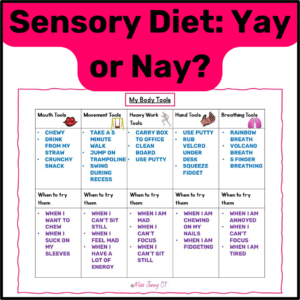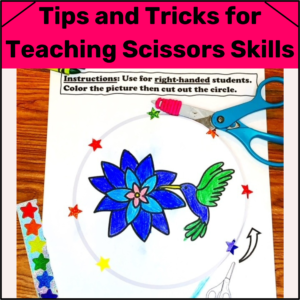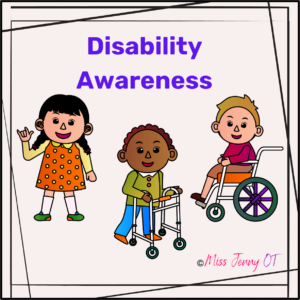Have you heard the term “interoception” but don’t know what it is or why you should care about it? Do your kids or students have difficulties with self regulation and none of the strategies seem to work for them to learn self control? Perhaps interoception awareness is the missing link.
Simply put, interoception refers to our inner senses, such as feeling our stomach is empty, our throats are dry, our bladders are full, our hearts are pounding, or our muscles feel tense. If you think about it, these sensations should cause us to act. If my throat is dry, I drink something. If my stomach is empty, I eat. If my heart is pounding, I might need to consider the cause.
What if you didn’t notice these sensations? What if you didn’t know your bladder was full until you barely had time to race to the toilet, or worse, you wet yourself? What if you didn’t realize your stomach was full and you kept eating? This is common in people who may have sensory processing disorders. It may include people with autism, but not all autistic people have issues with interoception, and having issues with interoception does not make someone autistic.
Now, what about the relationship to self regulation? Think about the last time you felt nervous. What did you notice in your body? For me, when I feel nervous, my brain might feel full or distracted, or I might feel dizzy. My heart pounds, my breathing gets faster, my tummy is full of butterflies, and my muscles feel weak. Now, imagine you are a child and you feel these things, but don’t know what they mean. Can you imagine that you might lose control and have a meltdown? This happens often with our kids who struggle with emotional regulation.
The other piece to this is that kids may not notice these sensations or symptoms of emotions until it is too late to use a self regulating strategy. If I have taught a child to take deep breaths when they are mad, but they don’t recognize the signs of getting mad, they will never know when to take those deep breaths.
Once you start working with kids (or anyone for that matter) on learning their interoceptive signals, you will likely see more success in them learning and applying self regulation skills.
By now, you might be wondering how to teach this? This free guide can you help you get started. https://www.teacherspayteachers.com/Product/Teaching-Interoception-Free-Teacher-Guide-5795678
Once you know more about the basics, you check out these printable workbooks to use when teaching interoception: https://www.teacherspayteachers.com/Product/Self-Regulation-Activities-Interactive-Interoception-Activities-5798992. Kids will love decorating each page while learning more about how they experience emotions.
How have you taught interoception to your students/kids? Comment below!







